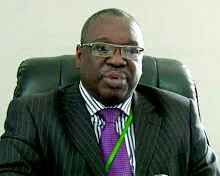The Independent National Electoral Commission has posited that inconclusive elections is not new in Nigeria’s electoral history.
INEC cited several instances in previous republics.
The Director of Voter Education of INEC, Dr. Oluwole Osaze-Uzzi, made the declaration at a CSO Expert Group meeting on Electoral Reforms organised by the commission in conjunction with the Independent Service Delivery Monitoring Group in Abuja.
Osaze-Uzzi, who represented the Chairman of INEC, Prof. Mahmood Yakubu, spoke on the myths and facts surrounding recent inconclusive elections.
“It is better the elections are inconclusive or they might as well be contested in court,” he said.
Osaze-Uzzi said inconclusive elections did not just begin, citing instances of elections that were inconclusive in the past such as the 1979 Unity Party of Nigeria argument in court challenging the presidential election between late Chief Obafemi Awolowo and Alhaji Shehu Shagari, the 1999 Rivers State governorship election, the 2011 Imo State governorship election and the 2014 Anambra State governorship election.
He said INEC is legally bound to declare inconclusive any election that is accompanied by violence and/or electoral malpractice, claiming that doing otherwise will amount to a breach of the Constitution, the Electoral Act and the fundamentals of our democratic ethos.
He also said if the Commission doesn’t take the decision of declaring flawed elections inconclusive, it would mean a reward or an encouragement of violence and electoral malpractices.
According to him, the consequences of inconclusiveness in an election are finance, manpower, logistics, time and resources as all these would have to deployed in the event of a rerun election.
Previous ArticleBoko Haram kingpin on Army’s wanted list arrested
Next Article My ‘Breathless’ experience – Uti Nwachukwu


